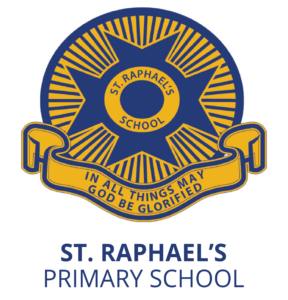Within the safety of the school community, a life long interest in learning will be fostered. Children will be assisted in developing the skills and knowledge necessary for them to be active participants in society at all stages of their lives.
Curriculum Design
The Victorian Curriculum F–10 includes eight learning areas and four capabilities. The learning areas of the Arts, Humanities and Technologies include distinct disciplines. The capabilities represent sets of knowledge and skills that are developed and applied across the curriculum.
Learning areas and Capabilities
The Victorian Curriculum F–10 includes both knowledge and skills. These are defined by learning areas and capabilities.
The design of the Victorian Curriculum F–10 is set out below:
| Learning areas | Capabilities |
| The Arts
· Dance · Drama · Media Arts · Music · Visual Arts · Visual Communication Design English Health and Physical Education The Humanities · Civics and Citizenship · Economics and Business · Geography · History Languages Mathematics Science Technologies · Design and Technologies · Digital Technologies |
Critical and Creative Thinking
Ethical Intercultural Personal and Social |
Standards and levels
The Victorian Curriculum F–10 is structured as a continuum across levels of learning achievement not years of schooling. This enables the development of targeted learning programs for all students, where the curriculum is used to plan in relation to the actual learning level of each student rather than their assumed level of learning based on age.
Each curriculum area includes content descriptions explaining what is to be taught and achievement standards describing what students are able to understand and do. The achievement standards are provided in 11 levels for English and Mathematics or in five or six bands for all the other learning areas and capabilities.
Cross-curriculum Priorities
Learning about the cross-curriculum priorities of Aboriginal and Torres Strait Islander histories and cultures, Asia and Australia’s engagement with Asia, and Sustainability is embedded in the curriculum areas of the Victorian Curriculum F–10. These priorities provide national, regional and global dimensions and give students the knowledge and skills to engage with and better understand their world.
Learning about Aboriginal and Torres Strait Islander histories and cultures
The Victorian Curriculum F–10 includes opportunities for students to learn about Aboriginal and Torres Strait Islander histories and cultures. The knowledge and skills that students are expected to develop about Aboriginal and Torres Strait Islanders histories and cultures has a particular and enduring importance and assists students to understand the uniqueness of these cultures and the wisdom and knowledge embedded in them.
Learning about Asia and Australia’s engagement with Asia
Learning about Asia and Australia’s engagement with Asia allows students to develop knowledge and understanding of Asian societies, cultures, beliefs and environments, and the connections between the peoples of Asia, Australia, and the rest of the world. Learning about Asia and Australia’s engagement provides students with both a regional context for their learning, as well as building an understanding of the diversity of cultures and peoples living in Australia
Learning about Sustainability
Learning about Sustainability allows students to develop the knowledge, skills, values and world views necessary to contribute to more sustainable patterns of living. Learning about Sustainability has an increasing local, national and global resonance. Australia’s future prosperity will be impacted by past, present and future decisions, particularly in relation to the environmental, social and economic challenges.
The concept of sustainability is fundamental for students to understand the ways environmental, social and economic systems interact to support and maintain human life. It allows them to critically examine the diversity of views and values that influence sustainable development. The curriculum also provides students with the opportunity to participate creatively and to see themselves as having the capacity to act in ways that will help to establish more sustainable ways of living.
Diversity of Learners
The Victorian Curriculum F–10 has been developed to ensure that curriculum content and achievement standards enable continuous learning for all student, including:
- Students with disabilities and additional learning needs
- English as an additional language
- Gifted and talented students
G.A.T.E.W.A.Y.S
G.A.T.E.WAYS was established in 1994 to provide opportunities for highly able and gifted children with special educational needs.
Like-minded students can participate in programs that will challenge them intellectually and help develop their individual talents.
Both short and longer term programs in all areas of the curriculum are offered in Melbourne schools, ‘On Location’ and interstate.
Please note that G.A.T.E.W.A.Y.S is not funded by the school. Children are selected by their teachers The cost of each program varies and will need to be funded by the parents of the children who are selected to attend each program.
For more information visit: http://www.gateways.edu.au
Reading Recovery
Reading Recovery is a school-based literacy program that is designed to assist students who are “at risk” in reaching literacy goals. It focuses on Year One students who, after one year of schooling and despite quality programs are not developing effective reading and writing processes.
The Reading Recovery teacher works with a minimum of four children daily on an individual program that builds on each child’s strengths encouraging success, and independence while strengthening self-esteem and the student’s natural desire to learn.
The Reading Recovery Program is based on a holistic approach to the acquisition of literacy. It relies on a team approach supported by the whole community – principal, staff, parents.

